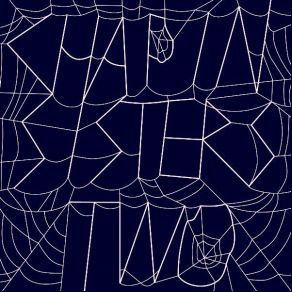Two
Download links and information about Two by The Chapin Sisters. This album was released in 2011 and it belongs to Rock, Alternative, Songwriter/Lyricist genres. It contains 10 tracks with total duration of 34:29 minutes.

|
|
|---|---|
| Artist: | The Chapin Sisters |
| Release date: | 2011 |
| Genre: | Rock, Alternative, Songwriter/Lyricist |
| Tracks: | 10 |
| Duration: | 34:29 |
| Buy it NOW at: | |
| Buy on iTunes $9.90 | |
| Buy on Amazon $0.86 | |
Tracks
[Edit]| No. | Title | Length |
|---|---|---|
| 1. | Sweet Light | 2:47 |
| 2. | I Can Feel | 3:34 |
| 3. | Paradise | 3:22 |
| 4. | Digging a Hole | 3:44 |
| 5. | Palm Tree | 4:17 |
| 6. | Boo Hoo | 3:18 |
| 7. | Birds In My Garden | 4:30 |
| 8. | Roses In Winter | 3:43 |
| 9. | Left All Alone | 2:44 |
| 10. | Trouble | 2:30 |
Details
[Edit]For Two, the Chapin Sisters' second album, they're down to the core duo of Abigail and Lily Chapin, thus the title of Two. But they're happy to keep on their one-foot-in-the-past/one-foot-in-the-present approach to vocal folk-inspired music, and if there's nothing quite as inspiringly left-field as their cover version of the Smiths' "I Know It's Over," the album is still a cracker jack release, beautifully serene and mysterious in equal measure. With heavy echo swathing nearly all the music on the disc, the focus is placed on the vocals first and foremost; even at the music's loudest, as on "Boo Hoo" there's a sense of its stepping to the side of the singing. But while there's an air of distanced regard at work here and there, there's also a sudden, lively kick present, too — consider how the steady verses of "I Can Feel" shift into a thrilling burst on the choruses and the easygoing swing of "Left All Alone" for their lyrical sentiments. Then there's "Trouble," a banjo-led clap-along that ends the album with a sense of winding down at the end of the night. The arrangements for the music do throw in some intriguing twists: what seems like a near-medieval chant and stomp on "Digging a Hole" gets tweaked thanks to the addition of a sax part, while the high strings appearing on the third verse seem more thriller movie than rural idyll. When the focus turns to one instrument, as on the piano-led "Paradise," there seems to be an almost perfect balance in the song: straightforward singing and music that become greater than the sum of their parts.